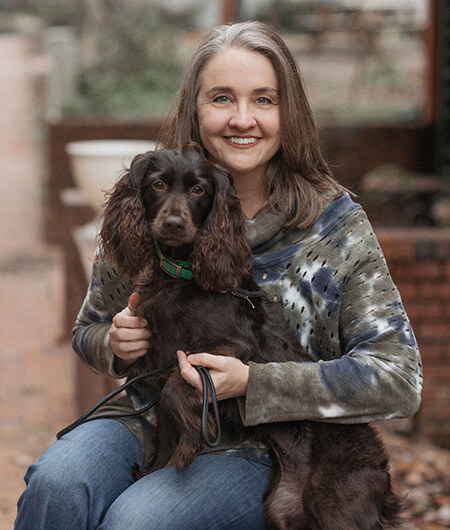What's your office location?
My physical office is in the Edmund Center – 20605 N Main Street Cornelius, NC 28031
Do you offer virtual appointments?
Length of sessions?
How much do your charge?
Do you accept insurance?
What forms of payment do you accept?
How do I set up an initial appointment?
What hours do you work?
What's your cancellation policy?
Who do you work with?
What happens in sessions? Between sessions?
Probably about 20% of the work I do with clients is exploring the past to understand where particular patterns of behavior or thinking were developed, and 80% is developing new strategies and skills to use in the present. This is because insight feels great but is virtually useless unless we take action in real life.
I become an accountability partner for you to try out new behaviors that lead to lasting change. I don’t always give specific homework assignments between sessions (I sometimes offer a specific resource or suggest something to try). I always ask what you are focusing on or what seems important to keep front of mind between sessions and then check in with you on how that went at the next session.
What modalities do you use in client work?
I am trained in various modalities that I believe are useful in multiple situations. They include CognitiveBehavioral Therapy, Solution-Focused Therapy, Motivational Interviewing, Gottman Method Couples Therapy, Family Systems Work, Presence-Based Coaching, and Acceptance and Commitment Therapy.
Did I mention SandTray for Adults? That, too.
As I have gotten a couple of decades of experience, I focus less on any particular method and more on the unique needs of any individual client. I am most interested in helping clients accept the things we cannot change (the past, the beliefs and behaviors of others, and some of our feelings and thoughts). I focus on what we have control over (our response to any given situation and our thoughts and feelings). I also do a lot of education about how anxiety and depression express themselves: through our physiology, emotions, and thoughts and how that informs effective responses.
What is your training and experience?
See also “What modalities do you use?”on this page and the “Professional Credentials” section on the >a href=”https://jennifercolemancounselor.com/about/”>About page.
The short answer is that I have two master’s degrees in Counseling, am a Licensed Clinical Mental Health Counselor, and have been practicing for roughly two decades.
What else do I need to know to make the most out of my work with you?
Clients willing to use awareness, intentionality, and a strong commitment to change will make the most progress quickly. If this is you, I love you already. If not, we’ll get there together.
Therapy is where what you bring reflects what you’ll get out. You’re not required to take notes or develop a bulleted list of objectives for every session, although I have had people do so. As far as it reflects a commitment to the process, they’ve succeeded. It is also common for clients not to know exactly what they want initially. They just know that something has to change. Figuring this out can be part of the work. Once you’ve identified the desired shifts, that awareness, intentionality, and commitment to change become paramount.
Will anyone else ever be present in our sessions?
 My therapy dog, Lua, comes to the office with me about 50% of the time. She loves pats but is only allowed off her place bed with permission, so if you’re not a dog person, no worries. She is so quiet that people have not even noticed a dog in the room before! I have also had dog lovers throw themselves on the floor next to her and refuse to get up. Do your thang!
My therapy dog, Lua, comes to the office with me about 50% of the time. She loves pats but is only allowed off her place bed with permission, so if you’re not a dog person, no worries. She is so quiet that people have not even noticed a dog in the room before! I have also had dog lovers throw themselves on the floor next to her and refuse to get up. Do your thang!
Other than Lua, therapy is just for you. You are welcome to bring a support person in to talk about what you’ve been working on and what support you would find helpful from them, but that’s by invitation from you only, with heads-up to me.

